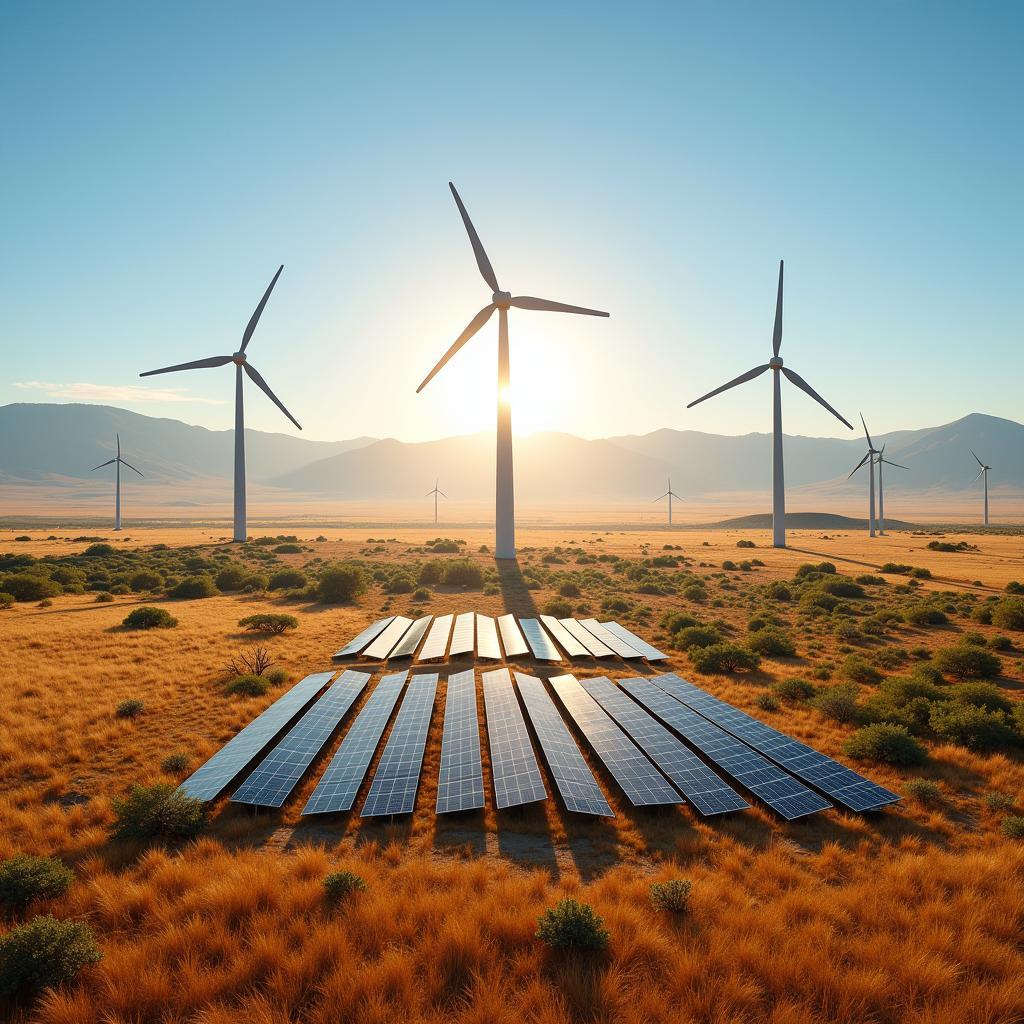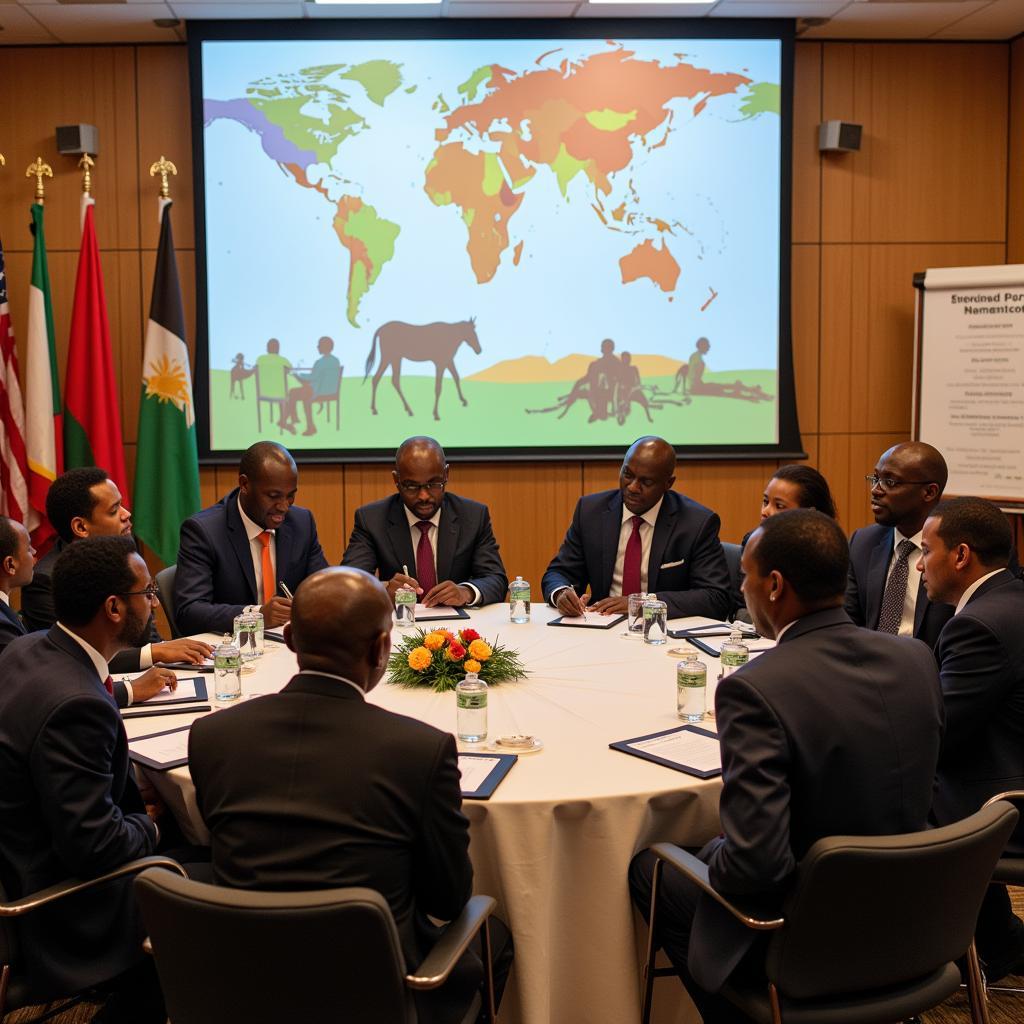African International Energy: A Continent Poised for Growth
The African continent stands at a pivotal moment regarding its role in the global energy landscape. While facing numerous challenges related to energy poverty and access, “African International Energy” represents a burgeoning sector rife with potential. The continent holds vast reserves of renewable and non-renewable energy resources, offering a unique opportunity to reshape the narrative of energy production and consumption. This article delves into the complexities of African international energy, exploring its challenges, opportunities, and its increasing importance in a globalized world.
Navigating the Complexities of African Energy Resources
Africa possesses a diverse energy portfolio encompassing fossil fuels, hydropower, and abundant renewable energy sources such as solar, wind, and geothermal. Despite this natural wealth, the continent grapples with energy poverty, with a significant portion of the population lacking access to reliable and affordable electricity.
 African Energy Potential
African Energy Potential
This paradox underscores the critical need for strategic investment in infrastructure development and technological advancement to unlock the full potential of African international energy.
Fossil Fuels: A Double-Edged Sword
Historically, Africa’s energy sector has been heavily reliant on fossil fuels, particularly oil and natural gas. These resources have played a crucial role in driving economic growth and development in many African nations. However, this reliance on fossil fuels also presents significant challenges:
- Environmental Concerns: The extraction and consumption of fossil fuels contribute to greenhouse gas emissions, exacerbating climate change, a pressing issue for the continent.
- Resource Curse: Over-dependence on fossil fuel exports can lead to economic instability, vulnerability to price fluctuations, and hinder diversification efforts.
- Energy Security: Limited refining capacity and inadequate infrastructure often force African nations to import refined petroleum products, making them susceptible to global energy market volatility.
The Rise of Renewable Energy: A Beacon of Hope
Recognizing the limitations and challenges posed by fossil fuels, many African nations are increasingly turning to renewable energy sources. The abundance of sunshine, wind, and geothermal energy presents a unique opportunity for the continent to leapfrog traditional energy models and transition towards a more sustainable energy future.
Investments in renewable energy projects are gaining momentum, driven by factors such as:
- Falling Costs: The cost of renewable energy technologies, particularly solar and wind, has decreased significantly in recent years, making them increasingly competitive with fossil fuels.
- Climate Change Mitigation: Transitioning to renewable energy sources is crucial for African nations to meet their commitments under the Paris Agreement and mitigate the impacts of climate change.
- Energy Access: Renewable energy technologies, particularly off-grid solutions like solar home systems, offer a viable pathway to electrify rural communities and expand energy access.
African International Energy: A Global Player
Africa’s energy landscape is evolving beyond its borders. The continent is emerging as a key player in the global energy market, attracting international investment and forging strategic partnerships.
Foreign Investment and Collaboration
The potential of African international energy has attracted significant foreign direct investment (FDI). International companies and organizations are partnering with African nations to develop and finance energy projects, bringing expertise, technology, and financial resources.
Regional Integration and Energy Trade
Regional energy cooperation is crucial for unlocking the full potential of African international energy. Initiatives such as the East African Power Pool and the Southern African Power Pool aim to facilitate cross-border electricity trade, enhancing energy security and promoting regional economic integration.
“The growth of the African energy sector is inextricably linked to international collaboration,” says Dr. Abena Oduro, an energy policy expert specializing in the African market. “By fostering partnerships and knowledge sharing, African nations can leverage global expertise to develop innovative solutions tailored to their unique needs.”
 African International Energy Collaboration
African International Energy Collaboration
Challenges and Opportunities: Shaping the Future of African International Energy
While the future of African international energy is promising, several challenges need to be addressed:
- Policy and Regulatory Frameworks: Creating stable and transparent policy and regulatory environments is crucial to attract investment, ensure fair competition, and foster innovation.
- Infrastructure Development: Expanding and modernizing energy infrastructure, including transmission and distribution networks, is essential for connecting remote areas and facilitating energy trade.
- Capacity Building: Investing in education, training, and skills development is crucial for creating a skilled workforce capable of supporting the growth of the energy sector.
Despite these challenges, the future of African international energy is bright. By leveraging its vast resources, embracing innovation, and fostering strategic partnerships, Africa has the potential to become a global leader in sustainable energy production and consumption.




